Welcome, reader, to our SavingsCool “Virus” removal guide. The following instructions will aid you in removing the unwanted software from your PC.
If you are reading this page, then you are probably having an issue with your Chrome or Firefox browser, which is constantly covered by ads, banners pop-ups and blinking messages saying “powered by SavingsCool”. Your online browsing activity is probably disturbed by these messages, especially if you don’t really enjoy being exposed to ads all the time. That’s why you are most probably seeking a way to remove them. The good news is that our “How to remove” team has developed a detailed removal guide that will help you completely uninstall SavingsCool “Virus”, which is the main source of the intrusive messages. This is an adware program and once you delete its files from your system, all of its annoying advertisements will disappear from your screen. But before you scroll down to the instructions, we suggest you read a bit more about the way adware operates and more importantly, how to prevent it from getting installed on your system in the future.
What exactly is adware and what is it doing?
As we already mentioned above, SavingsCool is an adware program. If you are wondering what exactly adware means, we should say that this is a term that comes in short from the words ‘advertising’ and ‘software’ and is used to classify all programs with ad-generating behavior. Having said this, SavingsCool is a piece of software used to display different pop-ups, banners, links, promotional messages and boxes with advertisements. A special ad-generating component, which gets installed on your PC, helps this software generate a huge amount of ads every time you open your browser.
This component may also keep track on users’ browsing history and searches, collect various browsing related data and then try to match the ads to this collected information. Sometimes, in its attempts to display more ads, the adware may impose changes on the browser homepage or affect the users’ searches by redirecting them to promotional web pages, pop-ups or banners. Some people may find this to be a very aggressive method of advertising, however, this is activity is fully legitimate and is widely used by the online advertising industry. In fact, many businesses and software developers make huge profits from the clicks on the displayed ads through a method called Pay-Per-Click. That’s why they usually program such adware applications to intrusively load ads on the user’s screen in order to collect more clicks, which turn into income. The good news is that you don’t really need to endure all this aggressive activity on your screen and below you will find how to completely remove it.
Why didn’t you notice when the adware got installed?
Knowing how annoying adware can be, probably no one would install it willingly on their system just because they love clicking on ads. That’s why, such programs usually don’t come alone, but are wisely packed with other attractive software, which users willingly download and install on their computers. This practice is called software bundling and many software developers effectively use it to distribute adware along with their free software, while earning from the paid clicks on the ads.
In case you usually install such free software or download different applications from file sharing platforms, email attachments, torrents, installers and download managers, you should know that there is a great chance that they may be bundled with a program like SavingsCool. That’s why it is a good idea to always read the EULA before installing any new software on your computer. Another important thing is, when you run the installation wizard, you should avoid the standard/default installation option which will automatically install all the programs in the given bundle without informing you on the details. Instead, you should always check for advanced/custom/manual options and click on them, because this is where you will find and will be able to manually deselect the programs you don’t want.
Could adware be considered a threat?
Usually, when being exposed to the aggressive activity of adware, people often think they have been infected with a virus. However, this is a wrong first impression, which is mainly formed because of the intrusive and uncontrollable ads. Adware is not a virus and security experts generally don’t classify it as a security threat. In fact, programs like SavingsCool are legitimate ad-generating components and the only thing they do is just that: displaying advertisements. They cannot replicate on other machines, they cannot infect other networks, nor can they be related to the malicious activities of Ransomware or Trojans, for example. Data corruption, blackmailing, theft of valuable information and credentials – these are all specialties of malware. Adware, on the other hand, is only capable of causing you some browsing-related disturbance and irritation, but surely not of harming your system or encrypting your data like the treacherous and extremely dangerous Ransomware would. Therefore, there is no need to panic if you detect Adware on your system. However, if you really feel that your normal browsing is heavily obstructed by the intrusive ads, pop-ups and banners, the removal guide below will show you how to uninstall SavingsCool from your system.
How to Uninstall SavingsCool
I – Uninstallation
- Use the Winkey+R keyboard combination, write Control Panel in the search field and hit enter.

- Go to Uninstall a program under Programs.

- Seek the unwanted software, select it and then click on Uninstall
- If you are unable to spot SavingsCool, search for any unrecognized programs that you do not remember installing on your PC – the unwanted software might disguise itself by going under a different name.
II – Safe mode and revealing hidden files
III – Cleaning all your browsers
- Go to your browser’s icon, right-click on it and select Properties.

- Go to the Shortcut tab and in the Target make sure to delete anything written after “.exe”.

- Now, open your browser and follow the instructions below depending on whether you are using Chrome, Mozilla or IE.
- Chrome users:
- Go to your browser’s main menu located in the top-right corner of the screen and select Settings.
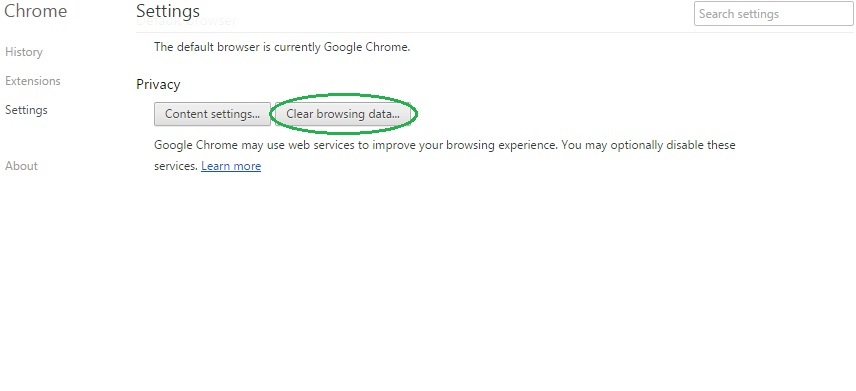
- Scroll down, click on Show Advanced Settings and then select Clear browsing data. Just to be sure, tick everything and clear the data.
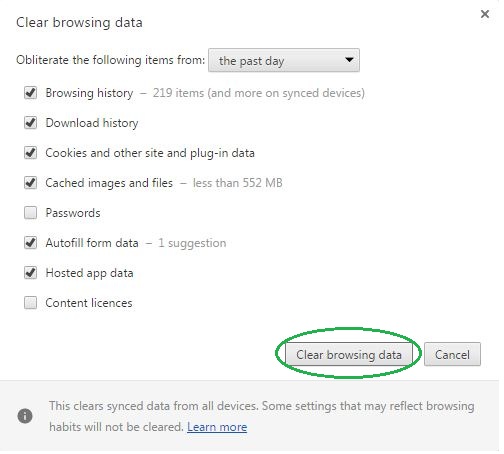
- Now, in the left pane, go to Extensions and look through all extensions that are integrated within your browser. If you notice any suspicious add-on, disable it and then remove it.
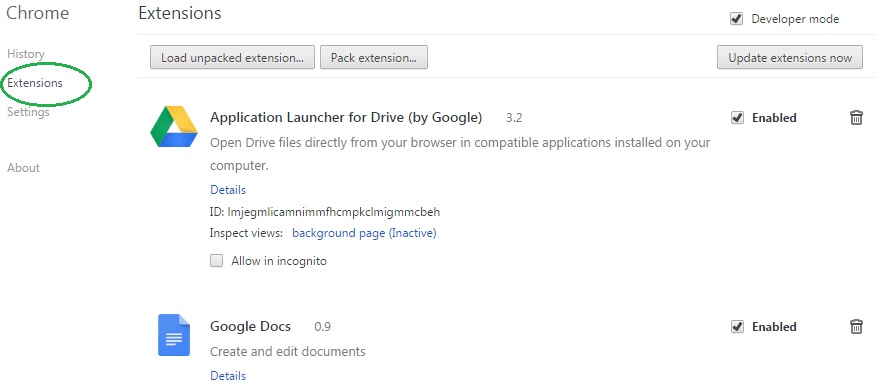
- Firefox users:
- Similarly to Chrome, go to the main menu and select Add-ons and then Extensions.
- Remove any suspicious browser extensions that you may have even if they do not have the name SavingsCool on them.
- IE users:
- Go to Tools and select Manage add-ons.

- Click on all add-on types from the left pane and check if there is anything suspicious in the right panel. In case you find anything shade, make sure to remove it.
IV – Removing Shady processes
- Go to your start menu, type Task Manager in the search field and from the results open View running processes with Task Manager.

- Thoroughly look through all processes. The name SavingsCool might not be there, but if you notice any shady looking process that consumes high amounts of memory it might be ran by the unwanted program.
- If you spot the process ran by SavingsCool, right-click on it, open its file location and delete everything in there. Then go back to the Task Manager and end the process.

V – DNS check
- In the start menu search box write View Network Connections and open the first result.
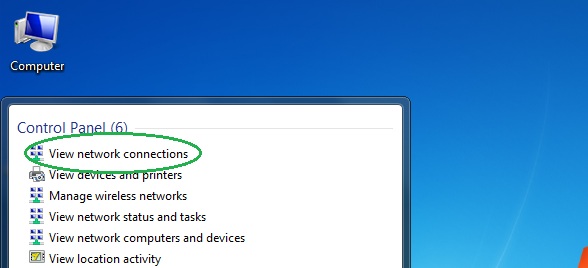
- Right-click on the network connection you are using and go to Properties.

- Select Internet Protocol Version (TCP/IPv4) and click on Properties.

- If Obtain DNS server addresses automatically is not checked, check it.
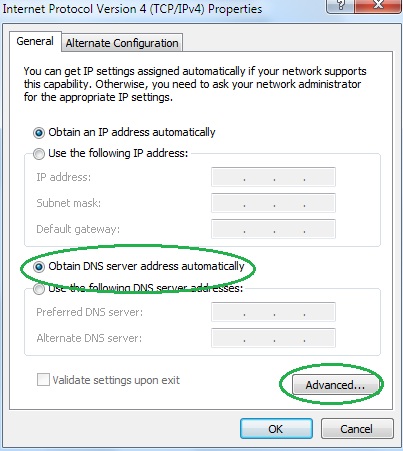
- Go to Advanced and select the DNS If there is anything in the DNS server addresses field, remove it and click OK.

- Click OK on the rest of the opened windows.





Leave a Reply